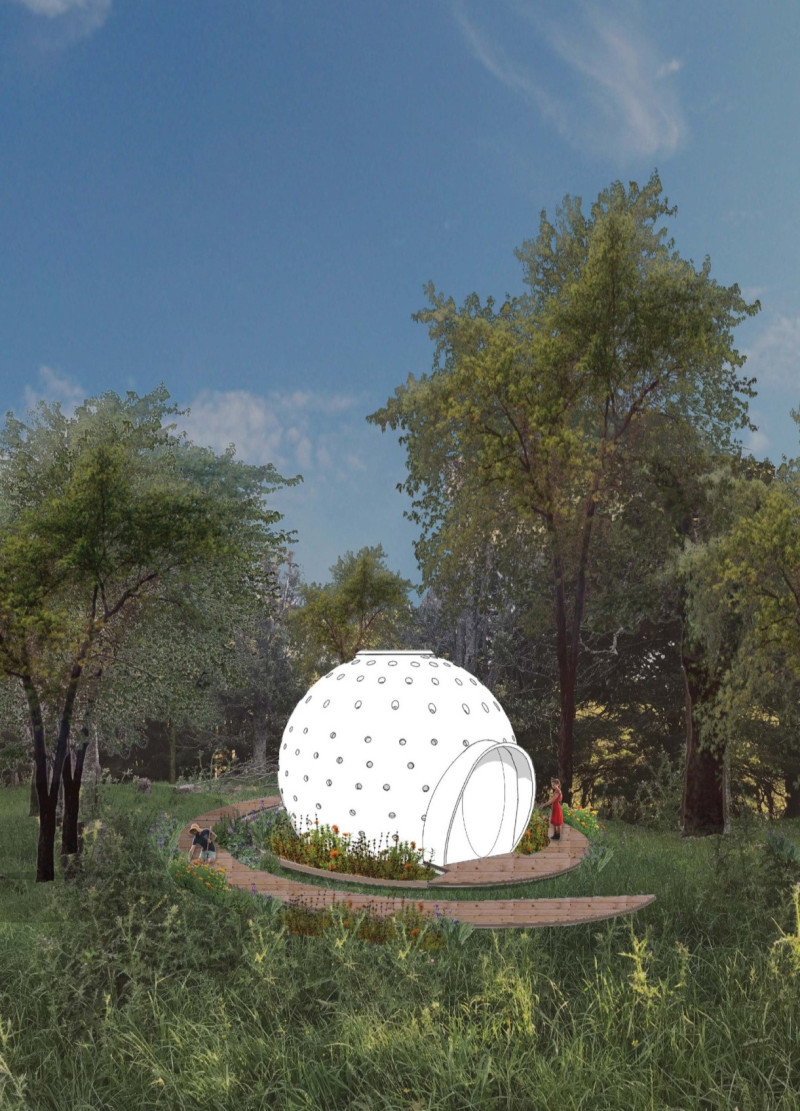5 key facts about this project
The Koru Meditation Dome is an architectural structure that draws on the Maori concept of "koru," which represents new beginnings and a deep connection to nature. Located in a peaceful setting, it offers a space designed for meditation and reflection. The overall form of the dome is based on the spiral shape of the koru symbol, creating an environment that encourages users to engage in their personal journeys of introspection.
Design Concept
The dome's shape is defined by a flowing spiral, closely resembling the fluid lines of the koru symbol. This design reflects the idea of life's cyclical nature, providing a calming space for individuals. As visitors move through the dome, they experience a natural progression that supports their exploration and focus on personal growth.
Material Selection
Aircrete has been chosen for the construction of the dome due to its lightweight and insulative qualities. This material consists of a mixture of cement, water, and foam, providing both sustainability and durability. Its fire, water, and insect resistance contribute to the long-lasting nature of the structure. Aircrete facilitates an efficient construction process, allowing for easy shaping and minimizing waste on-site.
Sustainable Features
The design incorporates various sustainable elements, such as solar vents that harness natural light and a rainwater collection system that supports the surrounding landscape. These features highlight the need for harmony with the environment while reflecting the koru symbol's message of connection. By integrating these components, the structure demonstrates a commitment to ecological responsibility in its design.
Interior Experience
Inside the dome, the atmosphere is enhanced by natural light filtering through carefully positioned skylights. This design choice strengthens the bond between the interior and the exterior. The acoustics of the space are tailored to support meditation practices, leading to a more immersive experience. These details create an environment that invites deeper thought and mindfulness, emphasizing the core ideas behind the Koru Meditation Dome.






















































